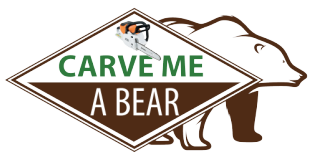“What’s in a name?” Most can recall Shakespeare asking this age-old question. There is more to name in a matter of speaking. For example, etymology will agree there is more to name as etymology is defining the meaning of a name. Many people will deliberate on a name for their children. One will choose a name because of the meaning, others will give a child a name after someone of importance in their lives, and few randomly give a name to a child simply because they like the way it sounds or even how it looks on paper with deliberate spelling. The last name, however, is a different story. Traditionally, the males continue to pass down the name to the next generation in many cultures and more often than not, the woman marrying into a family will take on the same culture tradition of taking their husband’s last name. There are some basics to Etymology that we at Carve Me A Bear! Chainsaw Carvings would like to share today.
Last Names Origins
Throughout the continent, it took a few hundred years for the majority of Europeans to use last names and by the 12th century in Europe, the use of last names was more common. The last name was used to give people more distinction; since particularly by the 13th century a third of the population was named William, John, and Richard. The last name begun as this example, William son of Andrew. The surname was not limited to recognizing the father, but they also evolved to locations, personal characteristics, and occupations.
Place or Location Surnames
In same areas of the world, people would attach the “surname” based on where the individual lives or had lived. When it comes to using the place as a surname, there are several origins. However, most generally took the place of their birth as a surname. John born in New York, for example, would be John of York or more simply put John York. Additionally, there are some cultures in past centuries that would use landmarks for a surname, such as woods, fields, brooks, and so forth.
Surnames Based on Personal Characteristics
Different characteristics would play a part in giving people more individualism. For example, the specific characteristics like weight, height, or hair color might be adopted as a surname. The color of hair, for instance, might become the surname such as John with red hair becoming John red. Then, depending on the language, many variations would filter. Such examples include French- Rousseau, German- Roth, Irish- Flynn, Italian- Rossi, English- Reid, and Czech- Cerveny. The translations of the characteristics deriving from personality such as fast, slow, dumb, and smart could also evolve for surnames. Additionally, some would dub people with animal characteristics. For example, William, a good swimmer, would be known as William fish.
Occupations Surnames
In centuries past, many people would take on a surname based on their occupation. Common surnames of Old English would be Shepherd, Baker, Taylor or Fisher. The blacksmiths or those that worked with metal inherited the surname Smith. Native languages, cultures, and [arts of the world all shaped the surnames we use today.
Custom Name Sign Carvings & More in Las Vegas, Nevada & Helena Montana
There are many ways you can trace your bloodlines and learn the origins of your surname. An often exciting quest is to discover the ancestors and the life they led. Meanwhile, you can display your surname proudly with a custom sign for your home. Carve Me A Bear! Chainsaw Carving provides custom name signs, call us today to order yours!






